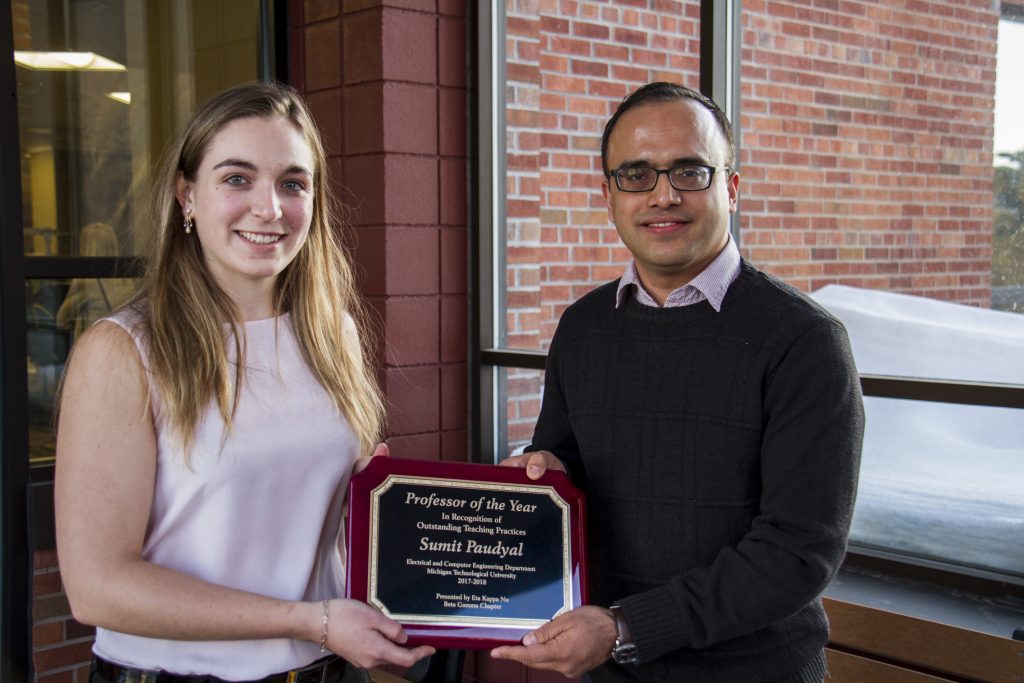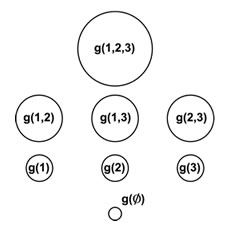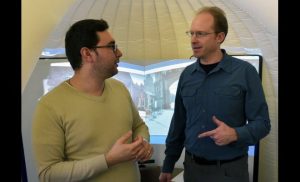Earlier this week I had the chance to join Professor Jeremy Bos and the students from Michigan Tech’s team Prometheus Borealis as they participated in the Year 1 competitive events in the GM/SAE AutoDrive Challenge at the GM Desert Proving Grounds in Yuma, Arizona.
I wrote about the AutoDrive Challenge when it was first announced that Michigan Tech would be one of the participants, a little over a year ago. The competition is jointly sponsored by General Motors (GM) and the Society of Automotive Engineers (SAE). The concept is to get teams of college students, graduate and undergraduate, to convert a Chevy Bolt into an autonomous vehicle over the three years of the competition, with increasing levels of autonomy and more difficult challenges in each successive year. Unlike most of the SAE collegiate competitions, this competition has little to do with the automotive powertrain; it is focused more on the electrical engineering, computer engineering, and computer science skills needed to implement the sensors, signal processing, and artificial intelligence to make the car drive itself. To be sure, there are mechanical engineers and other disciplines such as social science represented on the teams as well. It is truly a collaborative effort, consistent with what all our external advisors tell us is the norm in industry today.
There are teams from seven other North American universities in the competition; they are: Michigan State University, Kettering University, the University of Waterloo, the University of Toronto, Texas A&M University, Virginia Tech, and North Carolina A&T State University.
At Michigan Tech the team is hosted in the Robotic Systems Enterprise, one of several multidisciplinary student organizations that serve both an academic and a social function (for more about the Enterprise program see https://www.mtu.edu/enterprise/). The faculty advisors are Prof. Jeremy Bos from the ECE Department and Prof. Darrell Robinette from the Department of Mechanical Engineering-Engineering Mechanics. At last count there were something like 50 students in RSE and the majority of those, but not all, are on the AutoDrive team.
Retrofitting an automobile to make it autonomous is quite an ambitious task. There are sensors mounted all over the vehicle, including a video camera, one or more LIDARS up on the roof, and multiple radar units positioned around the vehicle at bumper level. The video camera typically sees the same scene a human drive would see. LIDAR stands for Light Detection and Ranging; essentially these use lasers to measure the distance to anything and everything in the field of view. The radars do the same thing, at radio frequencies; they have longer range and can see through conditions like rain, fog, and snow. Some vehicles use ultrasonic sensors as well. All the sensor outputs are digitized and the data are fed into a powerful computer mounted in the trunk. Multiple computer algorithms process all this data and provide electronic controls for the acceleration, steering, and brakes. Nothing to it, right?
For most of this year, the students have been busy with the concept design for the vehicle – how to mount all the sensors and the computers, and designing the overall software architecture for the computer algorithms. As one might imagine, safety plays a critical role in the design of the algorithms. I wish I could say more about the details of the design, but I have not been close enough to the project to comment with authority (I should let the students write one these columns!) Bottom line, the team has a design and has implemented that design with the sensors (except the radars) and computers installed on the vehicle. It’s actually ready to roll, for certain rudimentary autonomous functionality – an impressive accomplishment for a single year.
So on to Yuma for the competition this week. Yuma, Arizona, is a little town, actually somewhat larger than I expected, in the desert Southwest near where California, Arizona, and Mexico come together. 30 miles outside Yuma, about as remote as one can possibly get, is the Yuma Proving Grounds, a gigantic U.S. Army facility of over 1000 square miles which has on it a large vehicle testing facility run by GM. Although it is not exactly convenient for any of the teams in the competition, 3 hours drive from Phoenix, it has everything that is needed for this competition and is fully operational and available this time of year.
I was only able to join the group on Tuesday, and my only role was to provide moral support and get in the way. I had nothing to offer of a technical nature – although maybe that will change next year when they start to use the radars. On Tuesday, the students made an hour-long presentation on their technical concept design, and underwent a technical and safety inspection of the vehicle. There was also a demonstration of a side project on navigation and mapping, which will be integrated into the vehicle in Years 2 and 3, and a presentation on the social responsibility aspects of autonomous vehicles. I was greatly impressed by everything I saw.
Unfortunately, because of my need to get back home for events leading up to commencement, I was unable to stay in Yuma for the actual autonomous driving events, which happen Wednesday through Friday. Since those events are ongoing as of this writing, I will have to wait until next Friday to report on the overall results of the competition. Preliminary indications I am hearing is that the team is doing extremely well.
I am certain my counterparts at the other university will say the same thing about their teams, but I could not be prouder of this group of Huskies and everything they have accomplished this year. I was even more pleased to see how happy Prof. Bos was with the student performance, since leading this group has been a challenging task and a lot more work than he signed up for. If we can do well, pushing the technology forward, educating the next generation of automotive engineers, and making Michigan Tech look good in the process, it will all be worth it.
Stay tuned for the overall results of the Year 1 competition next week. Also, stay tuned for comments on commencement which is scheduled for Saturday. No doubt it will be memorable, being the last commencement exercises with President Glenn Mroz at the helm.
– Dan
Daniel R. Fuhrmann, Dave House Professor and Chair
Department of Electrical and Computer Engineering
Michigan Technological University











 This morning at 10am, with just the right amount of drama, suspense, and fanfare, the Michigan Tech Board of Trustees in a special meeting announced the selection of Dr. Richard J. Koubek as the 10th president of the University. Dr. Koubek will take office on July 1, 2018.
This morning at 10am, with just the right amount of drama, suspense, and fanfare, the Michigan Tech Board of Trustees in a special meeting announced the selection of Dr. Richard J. Koubek as the 10th president of the University. Dr. Koubek will take office on July 1, 2018.


